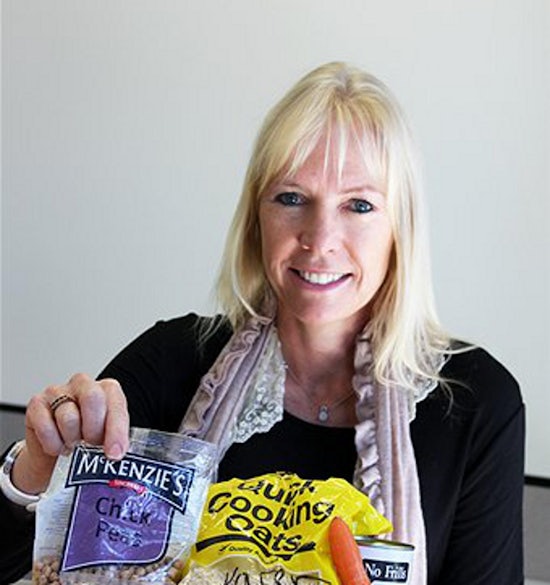New program ‘sustains’ health of older Australians
A new nutritional program has been designed to help older people, who have had a hospital stay over the past 12 months, to get back on track.

Associate Professor Karen Charlton says the “poor” referral systems between hospital and community services means many frail older people fall between the gaps.
The SUSTAIN program, funded by New South Wales’ Illawarra Health and Medical Research Institute, has been developed by physiotherapists, occupational therapists and dietitians from the local health service, and provides advice on activities to make daily living easier.
The Illawarra Shoalhaven Local Health District and the University of Wollongong (UOW) are offering Illawarra residents the chance to participate in the three month lifestyle program, especially designed for older people who are at risk of malnutrition and living in the community.
Figures show a third of patients aged 65 years and older who are admitted to hospital in the Illawarra are overtly malnourished, while a further 50% are at high nutritional risk.
The reportedly “poor” referral systems between hospital and community services means many frail older people fall between the gaps and are left to fare for themselves, according to Associate Professor Karen Charlton, UOW public health nutrition academic.
“What is most concerning is that most of these patients are discharged home in a poor nutritional state, where a downward spiral of ill health may result,” Associate Professor Karen Charlton said.
Using the world’s largest databases of nutritional assessment in older patients that has been recently collected by hospital dietitians, a research team led by Professor Charlton found that malnutrition is associated with longer hospital stays, recurrent hospital admissions and poor clinical outcomes, with a threefold risk of mortality after 12 to 18 months.
Malnutrition increases the risk of falls, osteoporosis, fractures, chronic disease, prolonged hospitalisation and increased complications, all of which heighten the risk of premature mortality and reduced quality of life.
Dr Marianna Milosavljevic, research director of the Illawarra Shoalhaven Local Health District, said General Practitioners (GPs) could play a crucial role in the early identification and management of malnutrition.
“We are confident that people at risk of malnutrition are identified and referred to a dietitian during their hospital stay. However, when they go home, that is when things tend to fall apart.
“They may feel too ill or frail to shop or prepare their own meals, experience poor appetites, or even forget to eat if there is confusion or some cognitive decline,” Dr Milosavljevic said.
Professor Charlton and her team have been testing a model of care at three general practices in the Illawarra and Shoalhaven region, which has shown promising results.
She said with the diverse range of expertise and research taking place in the Illawarra, the region is poised to tackle the problem of how to identify and address malnutrition in older people in the community – which can hopefully be used as a model nationally.
“The whole picture is coming together now – our vision is that the Illawarra region will provide the best services possible to its older residents,” Professor Charlton said.
The Illawarra Shoalhaven Local Health District and the UOW are offering Illawarra residents the chance to participate in a three month lifestyle program, especially designed for older people living in the community.
There is no cost involved to participate in the study. Interested participants can contact Professor Karen Charlton on 0434 077 189 or islhdresearch@sesiahs.health.nsw.gov.au before 8 August 2014 for more information.











![The new Aged Care Act exposure draft is slated for release in December of 2023, but advocates hope to see it rolled out on January 1, 2024. [Source: Shutterstock]](https://agedcareguide-assets.imgix.net/news/articles/wp/agedcareact__0811.jpg?fm=pjpg&w=520&format=auto&q=65)












Comments